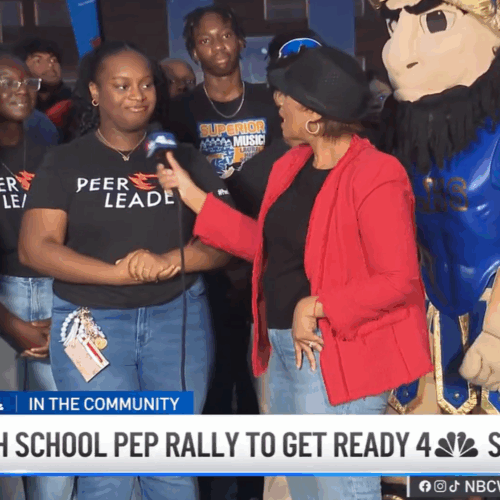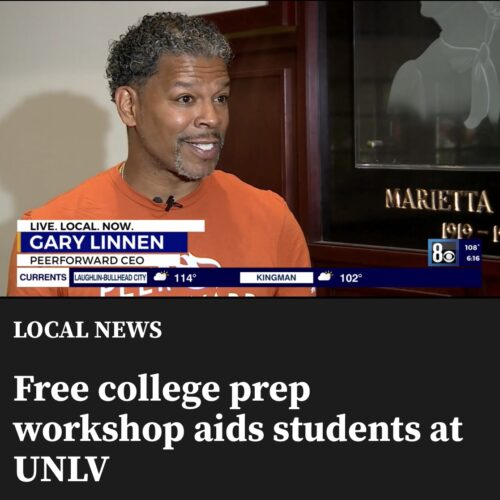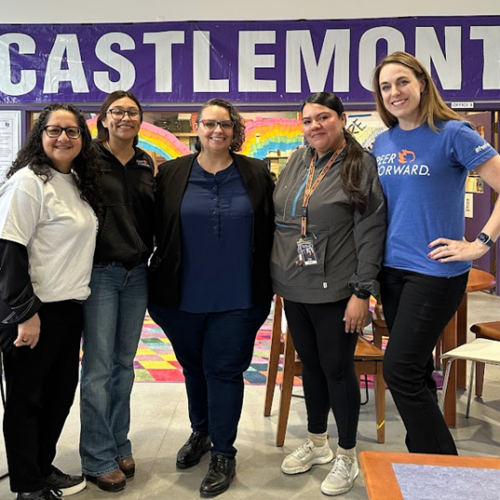The prestigious Brookings Institution featured the success of our PeerForward model as a promising, innovative approach to expanding college access and improving public education. “While by no means a silver bullet, students themselves may be an untapped resource that could help transform our public schools,” concluded University of Pittsburgh researchers Lindsay C. Page and Paul Scott. Page and Scott compared the completion rate of the Free Application for Federal Student Aid (FAFSA) at schools with PeerForward, in which trained students conducted FAFSA campaigns, to similar schools without the program. PeerForward high schools saw a 26% higher FAFSA completion rate. Completing the FAFSA is a key indicator of eventual matriculation to higher education. For more on the success and promise of PeerFoward, read the full blog post here.
You may also like...

Press
Laurel High School Peer Leaders Featured on NBC4 Washington
On Tuesday, August 19th, our Laurel High School Peer Leaders in Prince George’s County helped host a back-to-school fair where attending students could receive free school supplies, haircuts, and vaccinations […]

PeerForward
PeerForward featured on Channel 8
We’re thrilled to share that PeerForward made headlines in Las Vegas with our University of Nevada Las Vegas Workshop! Channel 8 News (a CBS local affiliate) visited the UNLV Campus […]

In The News
Building Better Money Habits with Bank of America
During the last semester of the school year, Erica Jones and Ximena Delgado from Bank of America joined 50+ students and Peer Leaders at Castlemont High School in Oakland, California […]








